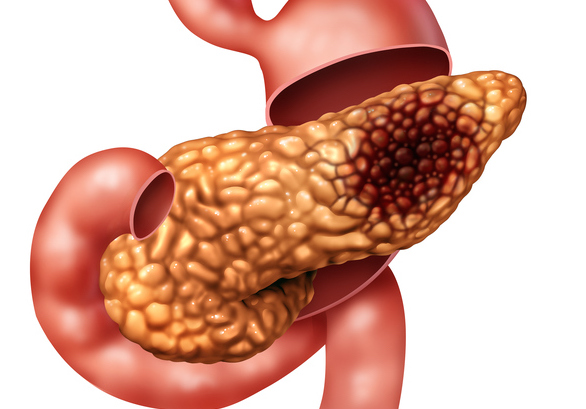
Pancreatic cancer remains the most lethal subtype of the disease due to the difficulty diagnosing it in its earliest stages. In all only about one-in-seven people diagnosed with the disease are still living five years later, as early detection and treatment are the keys to cancer survival.
Now, a team of researchers at the University of Florida (UF) are giving new hope of developing an effective therapeutic approach to the deadly disease. In findings published in the journal Cell Death Discovery, the UF team identified two small molecules that have shown the ability to inhibit precancerous cell progression. Further, the molecules also reversed a process called acinar ductal metaplasia (ADM) which precedes pancreatic cancer.
“To our knowledge, this is the first time researchers have been able to pharmacologically reverse ADM,” said Tom Schmittgen, PhD, the study’s senior author and chair of the department of pharmaceutics in the UF College of Pharmacy, part of UF Health. “With these compounds, we could potentially treat a pancreatic cancer patient at an earlier stage of the disease and hopefully improve the treatment options available.”
ADM is a defensive process within the pancreas preventing it from too many digestive enzymes and destroying itself. During this process, enzyme-producing acinar cells transform into ductal cells which line the pancreatic duct as a means of protection. If certain genes mutate during the transition from acinar cells to ductal cells, the cells become precancerous and cancerous.
For their research, the UF investigators built a laboratory model comprising animal cells with pancreatic cancer and tissue from a healthy human. The team then exposed the cell models to the two small molecule compounds and observed that the ductal cells changed back to acinar cells. Maintaining acinar cells in their normal state can prevent the development of pancreatic cancer.
“The findings are significant because we have now demonstrated that ADM can be reversed using drugs,” said Schmittgen, “This research may lead to developing treatments for patients who are at a high risk for pancreatic cancer development.”
Next steps for the UF researchers will be to test additional compounds against the models they have developed to see if the team can discover other compounds that are even more effective in manipulating, or preventing, ADM than the ones used in this current study.
“Our study highlights the relevancy of in vitro models of exocrine cell plasticity,” the authors wrote. “Aberrant pancreatic differentiation from acinar to ductal-like cells is believed to be an initiating event toward (pancreatic ductal adenocarcinoma) PDAC development. Re-establishing control of cellular transdifferentiation could open the doors to induce malignant pancreatic ductal cells to a more benign cell state. Therapeutic inhibition or reversal of pancreatic ADM may represent a strategy for attenuating ductal reprogramming of acinar cells to prevent the initiation of PDAC in high-risk patients such as those with hereditary syndrome or chronic pancreatitis.”













